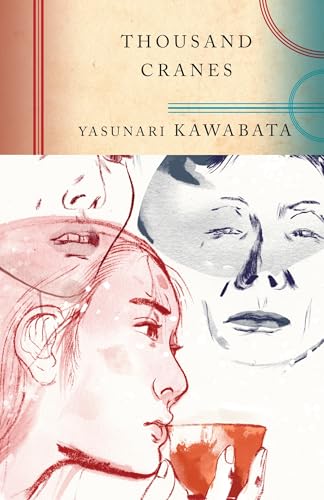Thousand Cranes
Yasunari Kawabata
BOOK REVIEW

Yasunari Kawabata's Thousand Cranes is not merely a narrative; it's an intricate tapestry woven with the threads of nostalgia, loss, and the fragile beauty of human connection. Each page envelops you in a world where the ethereal is ever-present-an exquisite dance of tradition and emotion that speaks volumes without uttering a single word.
Set against the backdrop of post-war Japan, this novella serves as a poignant reflection on the complexities of relationships and the weight of memories. Kawabata masterfully explores the delicate interplay between love and longing, encapsulated through the protagonist, who finds himself intertwined in a web of tragic romance. The lingering scent of tea and the gentle rustle of paper cranes permeate the atmosphere, binding past wounds with present desires. As you navigate this labyrinth of sentiments, the very essence of humanity reveals itself-complex, often contradictory, yet invariably profound.
Critics and readers alike seem unable to disregard the subtle brilliance of Kawabata's prose. Some laud his poetic style that flows like a serene river, while others argue it sometimes meanders, leading to a sedate pacing unfamiliar to those accustomed to modern narrative storms. Even so, one cannot deny the emotional gravity that this timeless piece carries, like an unyielding shadow lingering in the corners of memory. It resonates on levels that are both immediate and transcendent, beckoning each of us to reflect on our own stories of lost love and the beauty found in fleeting moments.
Thousand Cranes unfolds like a carefully orchestrated tea ceremony. Every detail matters-the clinking of porcelain, the inhalation of steam. Such moments serve not just as a backdrop, but as pivotal instruments that elevate the emotional stakes. You may find yourself gasping at the raw truths laid bare. How often do we find ourselves longing for connections, yet remaining vastly distant? Kawabata's lyrical prose taps into that haunting dichotomy-perfectly encapsulating the struggle between desire and the unbearable weight of societal expectation.
Interestingly, many readers have commented on how Kawabata's depiction of women in the narrative invites both admiration and critique. While they are portrayed with layers of complexity, some argue that their roles still reflect the restrictive societal norms of the time. One might consider how these portrayals resonate with contemporary audiences, shedding light on the advances and challenges that women continue to face. Is the beauty of their strength forever enshrined in the delicate paper cranes, or is there a myriad of untold stories yearning to break free?
Kawabata's influence is palpable in modern literature, echoing in the works of authors who dare to dive deep into the human psyche. His intricate understanding of emotion paved the way for writers to explore the nuances of culture and identity, creating ripples that continue to affect storytelling today.
With each reading of Thousand Cranes, layers of meaning unravel, revealing that which lies beneath the surface. It teeters on the edge of melancholy and hope, beckoning you to confront your own experiences with loss. It implores us to embrace the fragility of joy and the inevitability of separation.
The heart of this narrative beats fiercely, inviting you to experience the exquisite pain of loving what is ultimately unattainable. Your pulse quickens, your breath hitches as Kawabata navigates the delicate lines between despair and affection. By the journey's end, you might just find the edges of your own heart fraying. The story leaves you gasping for air, deeply moved, as if you've just experienced a wave crashing over you-a tidal force of emotions that begs you to confront your own reality.
Prepare to be disarmed, reshaped, and transformed. In Thousand Cranes, Yasunari Kawabata's artful storytelling offers not just a window into Japanese cultural traditions, but also a mirror reflecting our own shared human experience. As you close the final chapter, the echoes of the past and the hope for the future linger, binding you forever to this extraordinary literary masterpiece. 🕊
📖 Thousand Cranes
✍ by Yasunari Kawabata
🧾 147 pages
1996
#thousand #cranes #yasunari #kawabata #YasunariKawabata